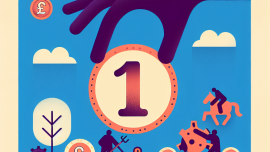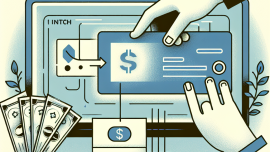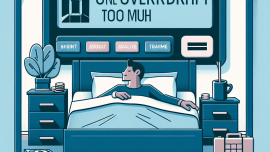
Why Everyone Keeps Talking About Compound Interest (It’s Actually Cool)
Understanding Your First Budget: A Beginner’s Guide to Taking Control of Your Money
Hey there, friend! So, you’ve decided it’s time to get serious about your finances? Good call. Budgeting might sound like something only spreadsheets and boring adults do, but trust me—it’s the first step to not being broke two weeks after payday. And more importantly, it’s your way to take control of your money instead of letting it control you.
I’m Thomas “Tom” Bradley—your go-to for all things money made simple. I like strong coffee, smart budgets, and reckless spending… in theory. But today we’re going to focus on turning your messy monthly finances into a clear, organized plan. Don’t worry—no fancy finance jargon, just real talk. Ready?
What is a Budget, Really?
Let’s start with the basics. A budget is simply a plan for how you’re going to use your money. That’s it. It’s not a punishment. It’s not a diet where happiness dies. It’s your way of telling your dollars where to go instead of wondering where they went.
Imagine this: you get paid, you spend a little here, a little there—coffee, rent, pizza, your best friend’s birthday gift… and suddenly, boom. It’s the 17th and you’re Googling “is it okay to subsist on instant noodles for two weeks?”
We’ve all been there. But that’s why budgeting is powerful. You take the wheel. And no, you don’t need to be good at math to do this.
Why You Need a Budget
Look, I’m not here to lecture. But there are a few reasons why budgeting is one of those adulting things we can’t ignore:
- You avoid the “where did my money go?!” syndrome
- You save up for stuff you actually want (hello, vacation savings fund!)
- You stop the paycheck-to-paycheck loop
- You feel less stressed because money anxiety is real—and budgeting beats it like a boss
- You start building wealth instead of always catching up
Still with me? Great. It’s time to make your very first budget.
Step-by-Step: How to Build Your First Budget
Start with these six easy steps. You don’t need fancy tools—just a notepad, a spreadsheet, or even a budgeting app if you’re feeling techy. What matters is consistency.
Step 1: Know Your Income
This is what you take home after taxes. If you have a fixed salary, easy-peasy. If you’re a freelancer or gig worker, figure out your average monthly income—or assume a conservative amount if income varies.
Step 2: List All Your Expenses
Now, this is where we look at where the money goes. Start by breaking your expenses into categories:
- Needs: rent, groceries, utilities, transport
- Wants: dining out, subscriptions, shopping
- Debt payments: student loans, credit cards
- Savings: emergency fund, retirement, vacation
Go through your bank statements from the last month. You might be surprised how much your “occasional coffee” habit is costing you.
Step 3: Subtract Expenses from Income
Needs + Wants + Debt Payments + Savings—add them up. Now subtract that from your income.
- If you’re in the positive, awesome! You’ve got money left. Consider adding it to savings or debt repayment faster.
- If you’re in the negative, it’s trimming time. Focus on reducing wants first—Netflix may need a vacation.
Step 4: Track Every Dollar
This isn’t fun. It’s necessary. For the first month, keep an eye on your spending. Categories will come alive: “Why did I spend $120 on sandwiches?!”
Use apps like Mint, YNAB (You Need a Budget), or even Google Sheets. The goal is awareness, not perfection.
Step 5: Set Realistic Goals
Don’t overdo it by trying to save 80% of your income if you’ve never budgeted before. Start small. Maybe:
- Put $50/month in your emergency fund
- Set aside $20/week for weekend fun—yes, budgets can include fun!
- Pay an extra $30/month on debt
It’s about progress, not perfection.
Step 6: Rinse and Repeat
Your first budget won’t be perfect. Budgeting is a living thing—you tweak it as life changes. New job? Adjust. Rent increase? Adjust. You forgot to budget for your dog’s grooming every 3 months? Adjust!
Common Rookie Budgeting Mistakes
Before I let you go, let me save you from the potholes I stepped on back in the day:
- Forgetting irregular expenses like haircuts, gifts, or yearly subscriptions
- Making your budget too tight—budgeting isn’t punishment, allow room for joy
- Ignoring small purchases—$3 coffees daily are $90/month my friend
- Giving up too soon—budgeting takes a few months to really click
Don’t beat yourself up. You’re learning, and learning means messing up sometimes. Hang in there. You got this.
Budgeting Is About Freedom, Not Restriction
I know “budgeting” doesn’t sound sexy. But freedom to spend on what you truly want? That is sexy. It’s not about having less fun—it’s about spending with intention, not impulse.
Your money should work for you, not the other way around. And with a little structure, a hint of discipline, and maybe fewer impulse buys on Amazon (guilty), you’ll find yourself with more options, not fewer.
If you’re ready to make your money finally make sense—welcome to the budgeting club. There’s no secret handshake, just a lot of “Oh wow, that makes SO much sense now.”
Need More Help?
Budgeting is just the start of your financial journey. If you’re looking for more beginner-friendly advice, check out our full library in the Beginner Finance & Money Basics section of Financeone. We break down complex topics like saving, credit scores, debt, and more—always in plain English, no judgment, no fluff.
Or swing by to learn a bit more about us and how we’re helping folks like you get smart with money, one article at a time. Got questions? Reach out.
Remember: budgeting isn’t about cutting back, it’s about building up. And you’re already off to a great start.
Stay smart, spend wiser—and keep your coffee budget intact.








Leave a Reply